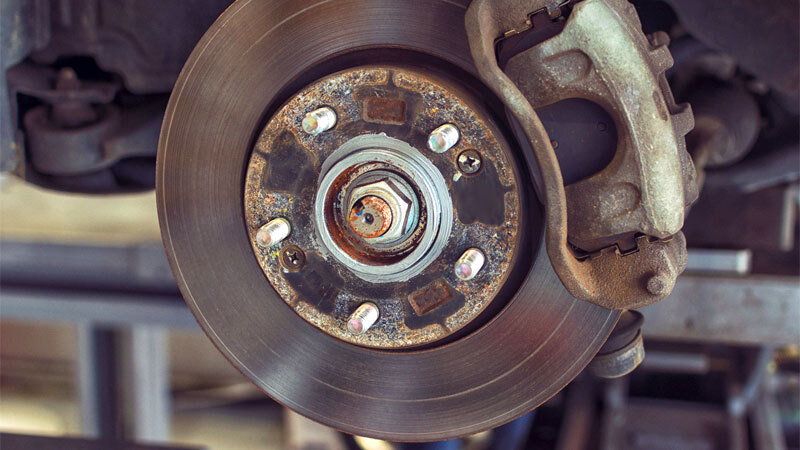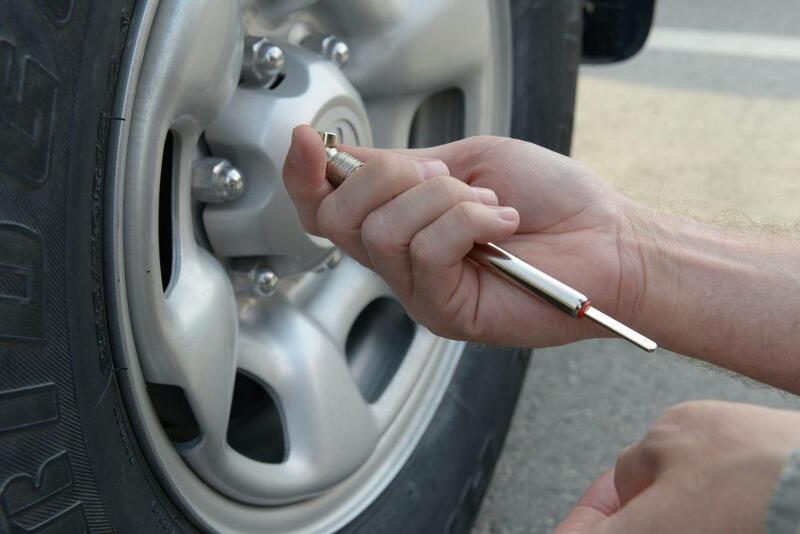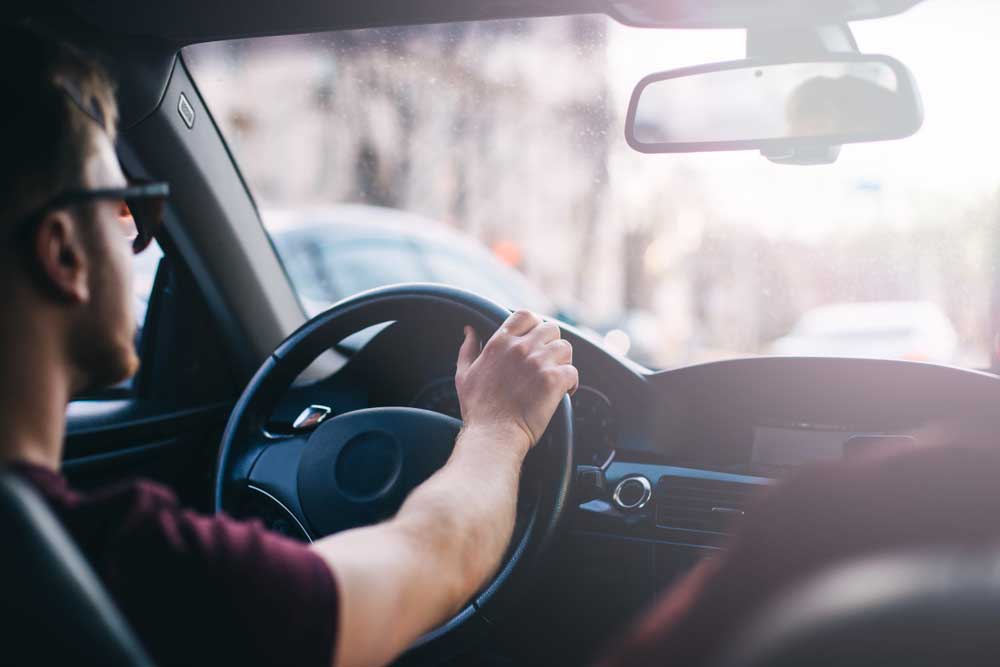Every car owner loves their car to be in proper working condition. Thus, whenever they suspect a fault, they get worried and try to find ways to fix it.
One of the easiest ways to know if there is a fault in any vehicle is when the vehicle starts producing irregular noises. Different kinds of noises can mean different types of fault; for example, when you hear a scraping noise when driving slow.
So how can you tell what causes the scraping noises you hear when driving?
This article will help examine different faults, the noise produced, and how to troubleshoot your vehicle to be certain of a fault.
Lets get started!
What Causes Scraping Noise When Driving Slow
More often than not, if you hear scraping and grinding, it very well may be ascribed to one of two main concerns: Worn-out wheel/hub bearings. Worn-out brake linings.
Different issues can affect the proper working condition of a vehicle. Diagnosing and finding the origin of these issues is critical to fixing the problem and getting your vehicle back to proper working conditions.
Usually, we first diagnose cars by analyzing them with our physical senses, and observing sounds produced by the car is one primary way of analyzing the condition of your car.
However, there are many reasons your car might produce strange noises, which are more profound when you drive slowly.
In this section, we will be highlighting and explain the causes of grinding noises when driving slowly;
Your Transmission may be Bad
The transmission, also known as a gearbox, is another component on your vehicle’s drivetrain that can cause grinding noises.
One of the reasons why transmission might cause noises is the low level of transmission fluid or structural damage to gears within the transmission.
In addition, grinding noise in the transmission will also cause difficulty in changing gears and vibrations in the vehicle.
The transmission system is very complex, and although it can be repaired, a seasoned professional must do it.

The Wheel Bearings May be Faulty
Your car’s wheel bearing is a vital component that allows your wheels to roll seamlessly; you will hear some noise whenever these bearings go bad.
The wheel bearing is usually located at the front wheel hub assembly. A bad wheel bearing will suffer from increased friction due to poor lubrication.
Whenever this happens, a grinding noise originates from the front wheel hub whenever the driver drives slowly or slows down.
In addition to these noises, there will also be increased wear and tear in the front wheel assembly hub.
If the wheel bearings are damaged, they will most likely need replacements; however, proper lubrication with grease can allow them to last a very long time without experiencing wear or tear on the bearing balls.
Your Vehicle Lack Lubrication
The lack of lubrication in certain brake system components will also cause grinding noises to emanate from your vehicle when driving slowly or after engaging the brakes.
One component of the brake system that needs to be lubricated is the caliper pins that hold the two sides of the brake caliper together.
For the brake to function, the caliper piston must also be well lubricated by the caliper lube to function properly and not grind against other components.
Also Read: Brake Pad Replacement Cost
The CV Joints is Bad
The CV joints in a vehicle are always an important component that keeps your vehicle stable and comfortable during driving conditions. They work with the CV axle to ensure better handling and a comfortable ride for vehicle ls.
Poor lubrication is one of the major reasons why a very cool cv-joint would produce grinding noises. The inadequacy in relation can be caused by either a dick or structural damage.
To fix this issue, you must employ the services of an expert to diagnose the extent of damage and profile solutions.
Can Be Caused by Worn Brake Pads
The brake pads are another component in the brake system that can cause noises whenever they go bad.
One issue created by the wear of the brake pad is that brake pads are ineffective during braking and produce distorted noises.
Your brake pad must not only be worn down before it causes distorted noises; installing poor-quality brake pads will also cause these noises.
Brake pads are made out of a special combination of materials with a very high coefficient of friction; however, if poor quality brake pads are used on your brake system, they can destroy your brake rotor and create excessive unbearable noise.
Brake pads are bound to wear down after 1 – 3 months, depending on usage. Its constant wear is due to its working principle, based on high friction to stop your vehicle from moving.
However, the only solution to a worn-down brake pad is a replacement. Replace your brake pads with quality ones to protect other brake system components.
Brake Rotors May Be Worn
The brakes on your car help you stop and slow down when necessary.
Your brakes are made up of different components, including brake rotors, brake pads, calipers, etc.
As important as they may be, they can also cause strange and annoying noises, especially when they begin to wear excessively.
Worn-out brakes are dangerous because they make driving uncomfortable with the distorted noise produced and give you less vehicle control.
The worn-out brakes generate these grinding noises when the brake pad wear and create a metallic contact with the brake rotor and grinds against each other as the vehicle tries to come to a stop.
You will want to replace damaged parts of your break if you wish to get your car working in perfect condition again because the squealing of all the grinding noise can be uncomfortable.
It only costs about $500 to replace the brake rotors.

How to Know What Caused Scraping Noise When Driving Slow
It is always advisable to diagnose your cars whenever they start making grinding noises, and here is why
- First, there is a problem if your car is producing grinding noises; however, if you allow the problem to last long before attending to it, it might become more severe and affect other components of your vehicle, costing you a lot of money to fix it.
- Diagnosing your car to understand the origin of scraping noises will help you prevent failure and accidents by readjusting your driving controls to compensate for the fault. Also, it would improve your confidence when you take your vehicle for repairs at the automobile workshop.
Therefore, you need to know how to diagnose grinding noises when driving slow or slow down. You should also know how to troubleshoot this issue.
Steps To Troubleshoot Grinding Noises In Your Vehicle
Here are the steps you can use to troubleshoot your vehicle whenever you hear grinding noises:
Step 1: Start your vehicle and listen for grinding noises.
Step 2: Lift the Hood and Locate the Alternator, Water Pump, and Power Steering Pump, If there is any, check within your engine bay and look carefully at the water pump alternator and power steering pump.
Step 3: Listen to the Alternator With a Piece of Hose. Listen carefully to the alternator. This procedure can be done effectively using a piece of pipe or hose.
Step 4: Listen to the Water Pump and Power Steering Pump, This is just Repeating the same thing you did in step three for the water and power steering pumps.
Step 5: Drive the Vehicle and Test the Brakes. If you have not seen found the source of the grinding noise, enter your vehicle and drive. While driving, test the brakes.
Step 6: Drive the Vehicle and Make a Right and Left Turn. Test the wheel bearing condition by turning right and left while driving.
Step 7: Drive the Vehicle and Listen as You Change Gears. Also, test the transmission for fault by changing gears while listening carefully.
Step 8: Check for a Grinding Noise When Driving at Low Speeds. Finally, reduce your speed and listen to any noises. Test everything again to be sure of where the noise is coming from
How to Fix Scraping Noise When Driving Slow
The only way to get the best solution to grinding noises/scraping noises is by employing the services of an expert to diagnose the problem and proffer solutions.
Also Read: Whining Noise When Accelerating (Causes & Solution)
Frequently Asked Questions – Scraping Noise When Driving Slow
How Much Does It Cost To Repair CV Joints?
On average, repairing the CV joint can cost anywhere between $300 to $900
When Should You Replace Your Brake Rotors?
Brake rotors do not necessarily need replacement as it lasts for long periods. Whenever there is structural damage to it, it is wise to replace it immediately.
How Much Does It Cost To Replace Wheel Bearings?
The average cost of replacing a wheel bearing is around $350 to $400
Conclusion – Scraping Noise When Driving Slow
Grinding noises and scraping noises when slowing down can be very unbearable, and in addition, they signify that your vehicle will soon fail. New noises often originate from the braking or suspension systems and, on rare occasions, the transmission. Diagnosing the origin of grinding noises in your vehicle can save money and protect your vehicle from unexpected failure.

